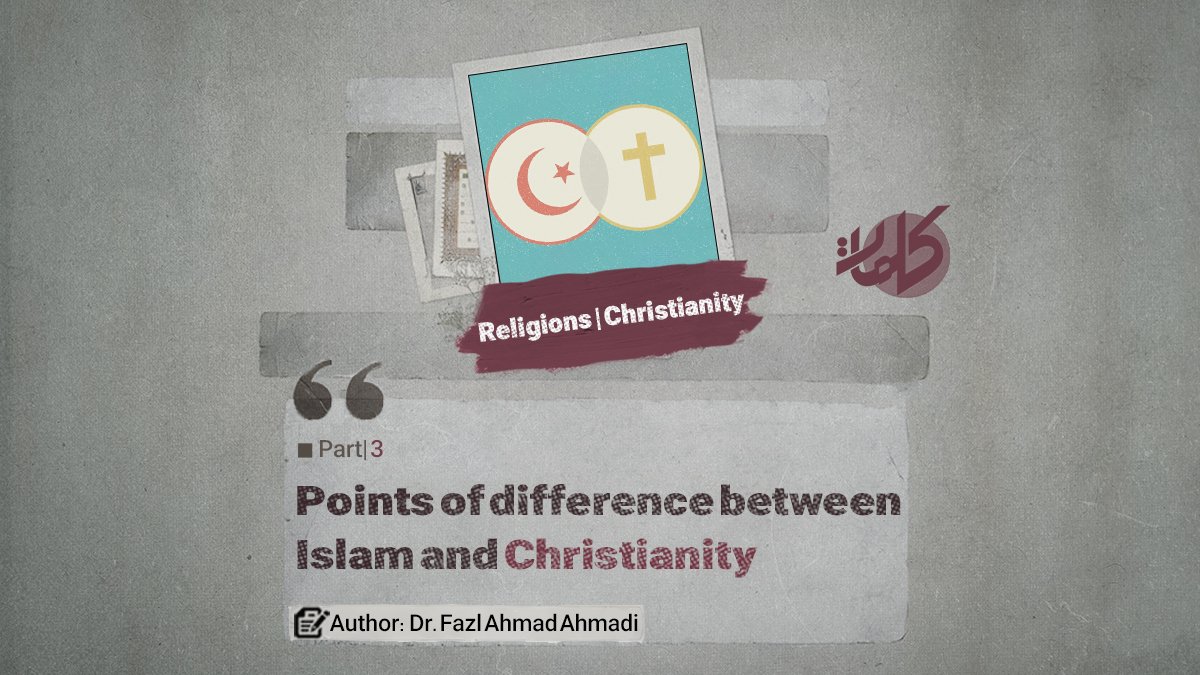Author: Dr. Fazl Ahmad Ahmadi
Points of different Between Islam and Christianity (Part Three)
D. Monotheism and Trinity:
Christianity, in its essence, is a monotheistic religion, and Christians believe in monotheism. However, it is worth noting that Christians accept monotheism alongside a concept of the Trinity, which, in their belief, ultimately returns to monotheism. According to the doctrine of the Trinity, Christians believe that the One God is manifested in three persons: the Father, the Son, and the Holy Spirit. In reality, Christians hold faith in three hypostases and three divine persons, and to avoid being labeled as disbelievers or accused of polytheism, they assert that these three persons or hypostases are manifestations of a single truth (al-Qaffari and al-‘Aql, 1992: 72; Saeed, n.d.: 280).
Today, the Trinity is a significant belief for all Christians, with differences in interpretation, although it is not the original doctrine of Christianity (al-Samouk and al-Shammari, n.d.: 345). They believe: “When Christians speak of the Trinity, they are trying to express the oneness of God.” Defending such a belief, which appears irrational and incomprehensible, and explaining the return of the Trinity to monotheism, was one of the main concerns of Christian theologians in the medieval period. This is because the early Christians did not believe in the Trinity and considered Christ a prophet and messenger of God.
The Ebionites and early Christians of the first centuries A.D. believed that Jesus Christ was merely an ordinary human being, the son of Mary, who was born by the absolute power of God without a father (Taheri & Taheri, 2009: 14). However, it seems that the issue of worshipping multiple entities was present from the early days of Christianity, as the Holy Qur’an says:
«وَإِذْ قَالَ اللَّهُ يَا عِيسَى ابْنَ مَرْيَمَ أَأَنتَ قُلْتَ لِلنَّاسِ اتَّخِذُونِي وَأُمِّيَ إِلَهَيْنِ مِن دُونِ اللَّهِ قَالَ سُبْحَانَكَ مَا يَكُونُ لِي أَنْ أَقُولَ مَا لَيْسَ لِي بِحَقٍّ إِن كُنتُ قُلْتُهُ فَقَدْ عَلِمْتَهُ تَعْلَمُ مَا فِي نَفْسِي وَلَا أَعْلَمُ مَا فِي نَفْسِكَ إِنَّكَ أَنتَ عَلَّامُ الْغُيُوبِ»
(Al-Ma’idah, 116)
In Islam, the pinnacle of all beliefs is monotheism and the oneness of God. In other words, monotheism is the most fundamental doctrine and the foundation of all Muslim beliefs. The Holy Qur’an, as the most authentic religious source in Islam, without any alteration or distortion, consistently emphasizes monotheism and regards it as the core essence of Islam. The entry into Islam begins with the phrase “لا اله الا الله” (There is no deity but Allah).
Numerous verses in the Qur’an explicitly and implicitly emphasize monotheism. These include:
1- “Say: He is Allah, the One” (Al-Ikhlas, 1);
2- “There is no deity but Allah” (As-Saffat, 37; and Muhammad, 19);
3- “There is no deity except Him” (Al-Baqarah, 163);
4- “Indeed, your God is One” (Yusuf, 110; Al-Anbiya, 8; and Fussilat, 6);
5- “There is no deity but Allah” (Sad, 65).



